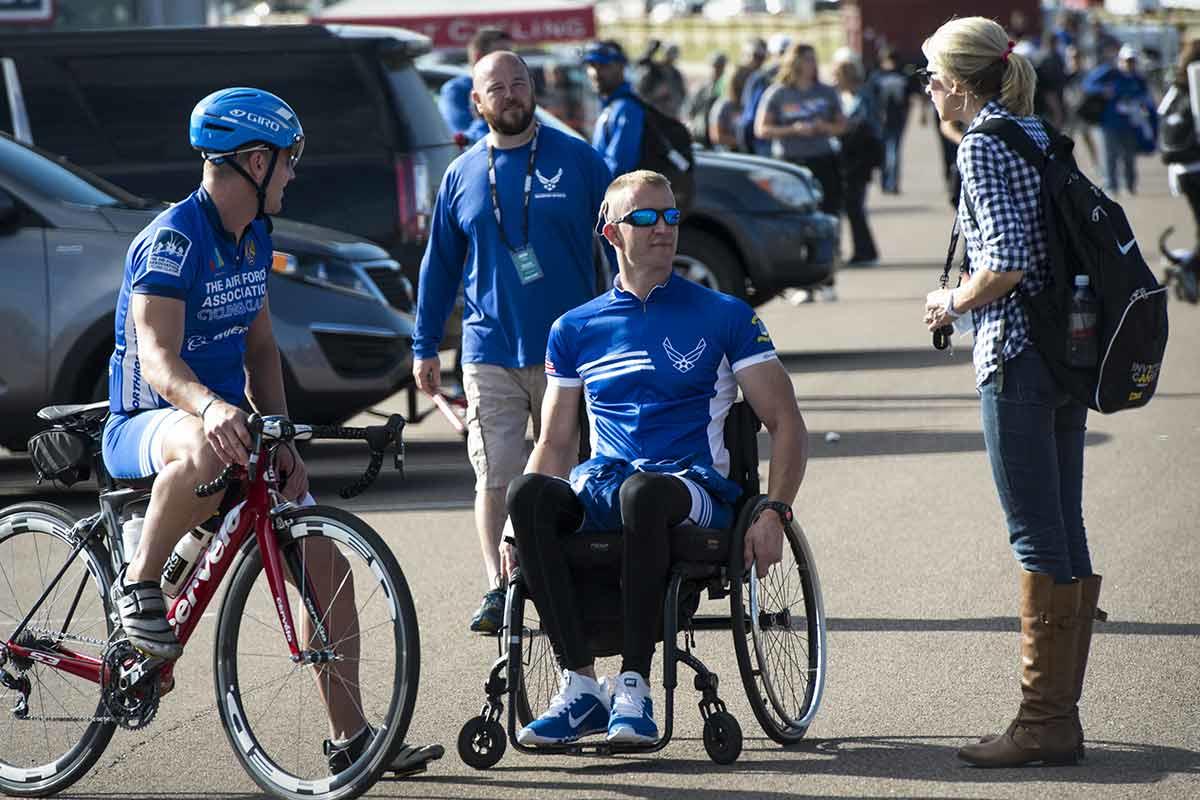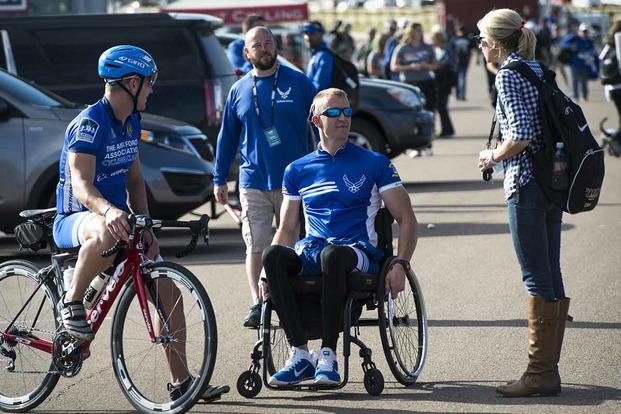

The Department of Veterans Affairs has suspended all ongoing eligibility reassessments of veterans enrolled in its family caregiver program while it reviews the program’s qualification requirements.
That comes after a March decision to suspend dismissals from the program after a VA review found that the vast majority of post-9/11 veteran families participating in the program would be removed following a 2018 change to eligibility criteria.
Although the dismissals were stopped, the reassessments and subsequent dismissal notifications continued, leading to confusion among veterans and caregivers regarding their status and options to appeal.
Read Next: Brain Disorder Found in Some NFL Players Appears Rare in Combat Veterans, Study Finds
The VA announced Thursday that the reassessments being conducted on participants for the Program of Comprehensive Assistance for Family Caregivers will stop, pending completion of the program review.
In a statement, VA Deputy Secretary Donald Remy said that the latest freeze to the program is being conducted to ensure that the agency meets the “needs of caregivers and veterans participating in the program.”
“Although we’ve come a long way in supporting caregivers through the Program of Comprehensive Assistance for Family Caregivers, we have much more work to do,” Remy said in a media release.
The caregiver program provides health care and benefits, including a stipend, to individuals who devote their time providing oversight of veterans who need assistance and supervision and cannot live independently. The stipends vary based on location, but range from roughly $1,800 to $3,000 a month, depending on the level of care required.
Under the suspension, the VA also will not reduce stipends based on a recent reassessment, and as previously announced, is not discharging anyone from the program until the review is complete.
VA Press Secretary Terrence Hayes said Thursday that the move was the result of the VA receiving feedback from caregivers and advocates during listening sessions being held as part of the review.
Hayes added that VA does not have a time frame for completing the review.
“We are trying to get to the heart of the matter, and once we have that sorted out, we can announce the time frame. We’ll give those in the program enough notice in advance when we start everything back up,” Hayes told Military.com.
As a result of the 2018 VA Mission Act, eligibility for the family caregiver program was expanded to include severely injured or disabled combat veterans from previous eras, beginning last October with veterans from World War II through the Vietnam War and this Oct. 1 for vets who served after May 1975 through Sept. 11, 2001.
At the same time, the VA published stricter eligibility criteria that focus on whether the veteran needs assistance with certain activities, such as eating, grooming and moving, or needs continuous supervision or instruction.
Under those changes, the VA initiated a review of post-9/11 veteran participant cases. But under the new criteria, thousands of post 9/11 veterans were disqualified. According to the VA, roughly 90% of all 19,800 “legacy” participants, as they are called, no longer met the program qualifications, significantly higher than the 33% initially estimated by the VA.
Currently, there are 33,000 veterans enrolled in the program.
In March, as a result, the VA suspended dismissals from the program and launched the review.
Veterans and caregivers have said the annual assessments are grueling for families, requiring lengthy interviews that are physically exhausting to former service members with disabilities.
During a hearing before the Senate Veterans Affairs Committee in March, Army spouse and caregiver Caira Benson described an interview during which her disabled husband, who received a traumatic brain injury in Iraq, “doubled over and began drooling on himself from exhaustion.”
“The program should have been a blessing. However, the program has become unpredictable, stressful and, frankly, dehumanizing,” Benson said.
According to the VA, some reassessments may continue for specific reasons, such as a request from a veteran or caregiver for a stipend increase or if there is a need for increased personal care services.
The VA also will continue to conduct the wellness visits that are required as part of the program.
Hayes said that reassessments were conducted as recently as this week, and caregivers may continue to receive notices of their eligibility. He added, however, that no one will be discharged from the program while the review is ongoing.
The Department recommends that caregivers contact their local Caregiver Support Program team for more information or check out the VA’s website for updates.
— Patricia Kime can be reached at [email protected]. Follow her on Twitter @patriciakime.
Related: ‘Dehumanizing:’ Why Veterans Are Giving Up on the Caregiver Program After Surge of Expulsions
© Copyright 2022 Military.com. All rights reserved. This material may not be published, broadcast, rewritten or redistributed.
